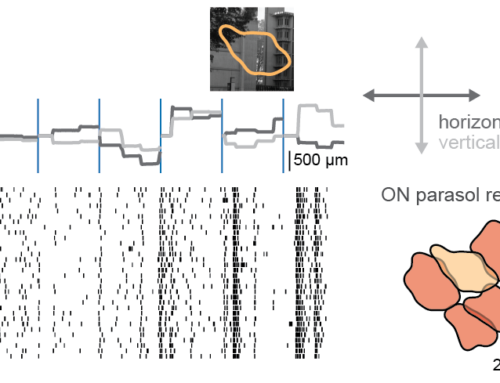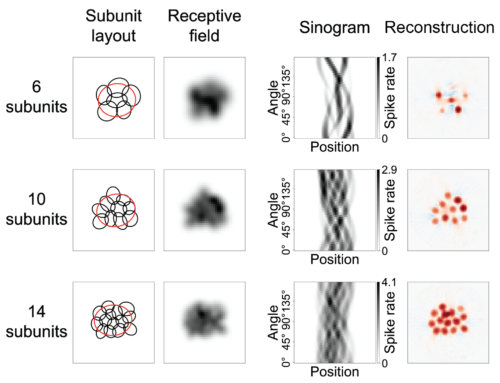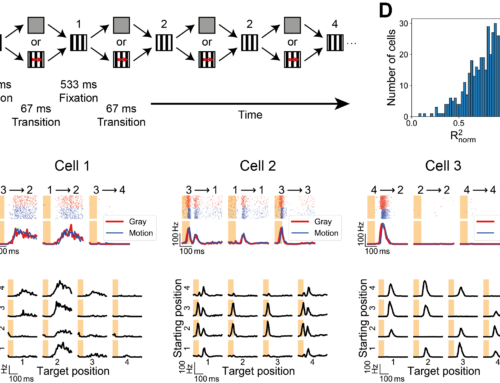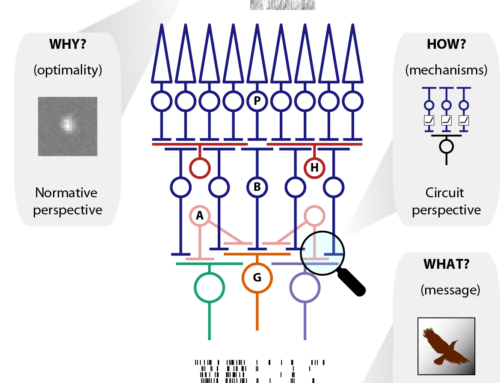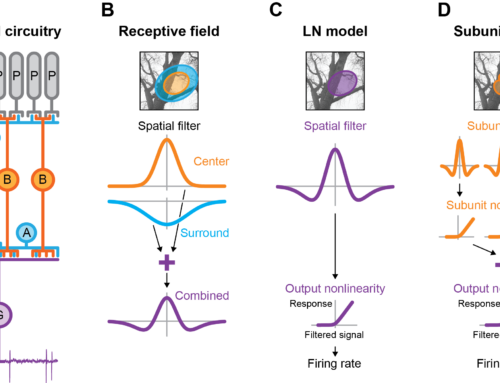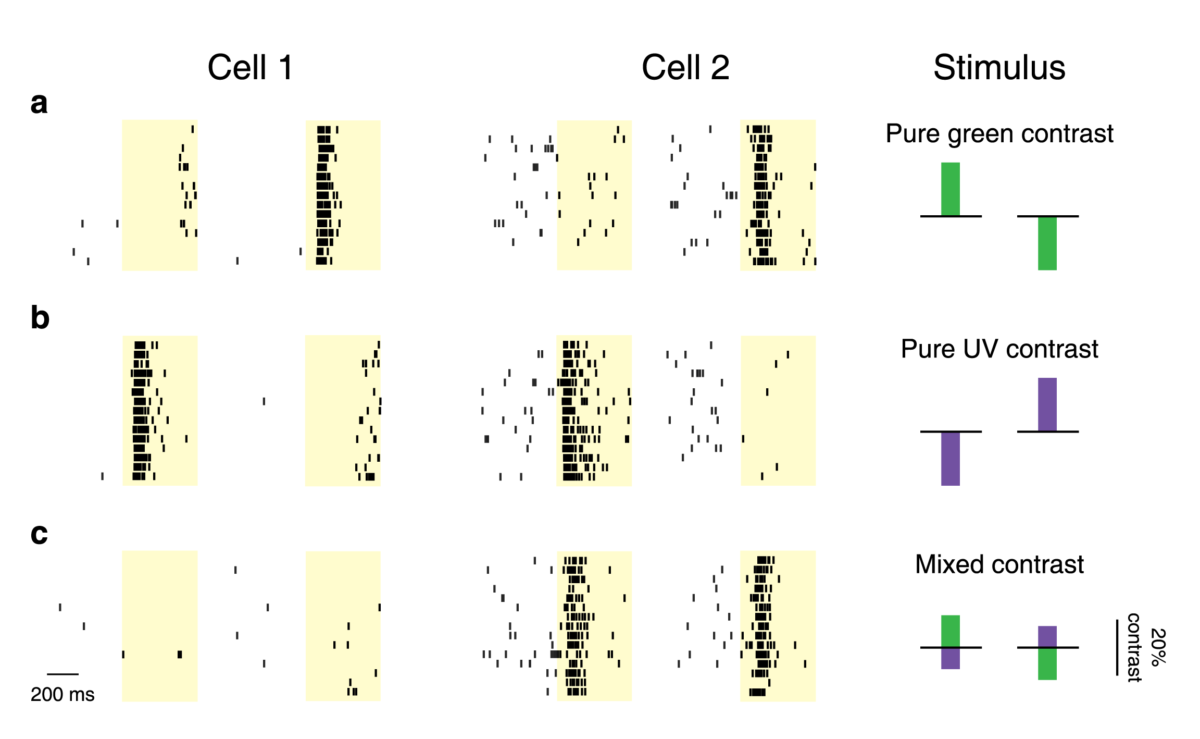
Linear and nonlinear chromatic integration in the mouse retina.
The computations performed by a neural circuit depend on how it integrates its input signals into an output of its own. In the retina, ganglion cells integrate visual information over time, space, and chromatic channels. Unlike the former two, chromatic integration is largely unexplored. Analogous to classical studies of spatial integration, we here study chromatic integration in mouse retina by identifying chromatic stimuli for which activation from the green or UV color channel is maximally balanced by deactivation through the other color channel. This reveals nonlinear chromatic integration in subsets of On, Off, and On–Off ganglion cells. Unlike the latter two, nonlinear On cells display response suppression rather than activation under balanced chromatic stimulation. Furthermore, nonlinear chromatic integration occurs independently of nonlinear spatial integration, depends on contributions from the rod pathway and on surround inhibition, and may provide information about chromatic boundaries, such as the skyline in natural scenes.
